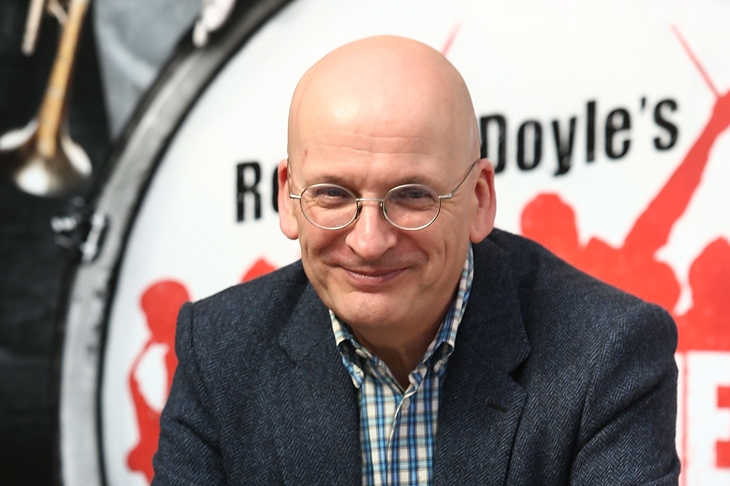As Roddy Doyle’s 12th novel begins, Victor Forde, a washed-up writer, has returned to the part of Dublin where he was born. He has a tendency almost to romanticise his loneliness, turn it into witticisms. It ‘would have been sad,’ he thinks, ‘a man of my age going back to some wrinkled version of his childhood. Looking for the girls he’d fancied 40 years before. Finding them.’
He is followed by a man who claims to be called Ed Fitzpatrick, and to know Victor from school. ‘Everything about him was abrupt, a bit violent.’ Victor can’t place him. And this initiates a deep dive into what Victor thinks he can remember: his youth as a music writer, ‘pretending to be Dublin’s Lester Bangs’, and a pro-choice radio pundit and his marriage to a celebrity. And, most memorably, his time at the local Christian Brothers school.
Anyone who has been to a boys’ Catholic school — even years after the decline of corporal punishment and institutionalised sexual abuse that the book makes its focal point — will be vividly reminded. Few writers are as consistently good as Doyle at conjuring this specific childhood mental geography; he won the Booker for it in 1993 with Paddy Clarke Ha Ha Ha.
But Victor’s mental geography destabilises the book. We know from the start we’re in the literary sub-genre of mid-to-late life meditation on the unreliability of memory. Victor never lets us forget he is in the act of reminiscing, piecing together his past. (‘I can’t remember what song was playing, just that it was shit.’) There is the self-interrogation (‘It wasn’t nostalgia. I don’t think it was’), and the careful oscillation between past and present tense. (‘I thought, and think, she was in pain.’) There is a foreboding, wistful concision to the prose (‘I didn’t know I was happy and I didn’t know that happiness was finite’).
This all works well. And in a novel that hinges on the fallibility of memory, a narrator’s misremembering of a crucial point is expected. What is unexpected is quite how far Doyle takes this.
Dialogue, narrative pacing, humour and marvellous set pieces are immaculately marshalled throughout Smile. But in the final pages, the mysterious Ed Fitzpatrick reveals not only that Victor has misremembered a life-changing event, but suggests that as a result he has misremembered most of his life to date. You almost expect a dead character to step out of the shower.
The book wants us to understand that certain evil things can all but entirely pull the rug out from under a life; but unreliability is so deeply dependent on, and filtered through, its own standards of reliability. Too much of it is irresponsible and ultimately unsatisfying because it negates the process of looking back over your own steps and the narrator’s prompts, working out where you have been led astray.
At the beginning of Smile, Fitzpatrick pronounces that memory is ‘like dropping bits of yourself as you go along’. It says a lot about Doyle’s power that he is able to create such an intensely moving book that yet drops so much of itself as it approaches its end.






Comments